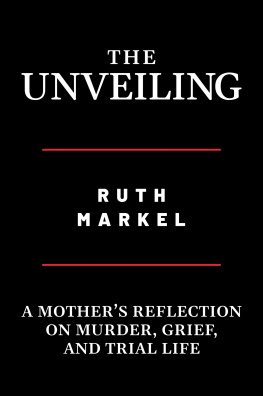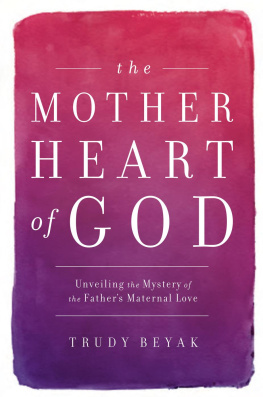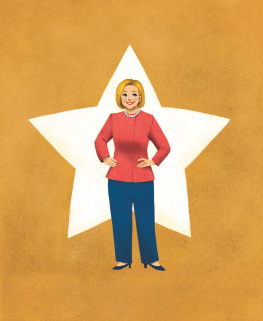
A POST HILL PRESS BOOK
The Unveiling:
A Mothers Reflection on Murder, Grief, and Trial Life
2022 by Ruth Markel
All Rights Reserved
ISBN: 978-1-64293-957-6
ISBN (eBook): 978-1-64293-958-3
Interior design and composition by Greg Johnson, Textbook Perfect
This is a work of nonfiction. All people, locations, events, and situations are portrayed to the best of the authors memory.
No part of this book may be reproduced, stored in a retrieval system, or transmitted by any means without the written permission of the author and publisher.

Post Hill Press
New York Nashville
posthillpress.com
Published in the United States of America
To my daughter, Shelly, for her love, support, and dedication to keep the light bright in our lives.
To my grandchildren, Michal, Ari, Roni, Benjamin, and Lincoln, who have the courage to make what looks impossible, possible.
A special mention to Phil and Ian who share this tragedy and journey.
Contents
B y 6 a.m. on the morning of September 26, 2019, it was already ninety-one degrees, another hot and humid autumn day in Tallahassee, Florida. I was getting dressed to attend the trial of two of the people accused of killing my forty-one-year-old son, Dan Markel. Even though the weather was oppressive, I put on my usual business uniform of a black jacket and black pants. I glanced in the mirror. I looked the same as I have looked for the past seven years, ever since Dan died. Haunted. Defiant. Devastated. Battle ready. I remembered I had to take a warm shawl with me to the courtroom, as the Leon County courthouse is always frigid. I checked my reflection one last time and asked myself these questions: Will I be comfortable sitting for hours in these clothes? Do I look appropriate for the jury, for the media, for Dan? How am I going to react when I watch the defendants walk into the courtroom for the first time? How will I deal with reporters following my every move? How did we get here? Will Dan ever receive justice? At this moment, I dont have a clue.
The Unveiling references my lowest emotional momentgoing with my family to the cemetery to see Dans gravestone for the first time, nine months after his deathand, like the act of lifting the cloth that revealed the writing carved on his tombstone, this book will expose what it feels like to be living what I call the trial life. It is, in effect, a series of unveilings.
To date, one defendant has turned states evidence, cooperating in exchange for a lesser sentence. Another has been found guilty of committing Dans murder and has received a life sentence without parole. He has lost the appeal of his verdict. A third is being retried in 2022 after a mistrial. Others who were once members of my own extended family have been allegedly implicated in the case but have yet to be charged. With the many inevitable postponements on the way to these new proceedings and the likely appeals if there are guilty verdicts, my own life sentence offers no likelihood of parole.
You might wonder if Dan may have done something to put himself in jeopardy. He didnt. My son was never involved in any criminal activity, and he didnt engage in dangerous behaviors or live recklessly. Instead, Dan was an upright, thoughtful citizen. He was a devoted father and a loving son; a dedicated, revered law professor; a prolific, well-known scholar; and a wonderful uncle, brother, and friend. He lived a law abiding and productive life dedicated to teaching and helping others. Dan himself was adamantly opposed to the death penalty, a view he addressed strongly and repeatedly in his work; he favored the justice of legal retribution. His death was felt by people in far-flung places around the world, and for those of us closest to him, it brought lifes normal progression to a complete stop.
There is so much I have learned to lean on to survive my new shadow-existence of what is trial life. My book will delve into the extreme juggling act my family and I have been obliged to perform while grieving a terrible and violent loss. Each chapter will describe my experience, from learning about Dans murder to the pretrial experience and our days in and out of the courtroom, as the case wound its way through the criminal justice system. I have learned a great deal about the machinations of a murder case, the elements that the families of victims can bring to investigations and cases, and the very public and proactive roles thrust upon us as we seek justice. The financial and psychological burdens are staggering, shattering, irreversible, and permanent.
Besides sharing my experience and knowledge for interested audiences as well as fellow victims families, I also wrote this book to highlight the issues and problems surrounding the legal rights of grandparents in Florida.
Until now, I havent told my story, but I have decided to open up my life and my heart to describe the difficult moments that my family and I have experienced as we became connected to one of the most notorious crime stories of the past decade. In the following chapters, I will give the heart-wrenching details of the murder itself as well as the trial of the killers. And beneath those headlines, I will also discuss what life has been like for methe unimaginable experience of being the mother of a murder victim.
As the evidence unfolded and we have moved forward in our quest for justice, I have learned extraordinary lessons and gained invaluable insights. Many have been rude awakenings; others, as we found a community in our grief and advocacy, have offered unexpectedly beautiful and affirming moments. In this book, The Unveiling: A Mothers Reflection on Murder, Grief, and Trial Life , I hope to uncover and share hard-learned lessons, which were imparted to me while waiting for hearings, trials, mistrials, and appeals.
In addition to telling my and my familys story, I will write about my experience of the trial life to dispense any wisdom and insights I have gleaned along the way and to emphasize how people can show support and offer empathy to others left bereft. Helping living victims of violent crimes, or indeed anyone navigating the trials of life, including trauma of any kind, is a cherished goal of mine. I want to make sure that other grandparents do not find themselves in the same situation as I and Dans father are, grieving the loss of contact with grandchildren. I want to inspire people to find a purpose in their lives and to use their grief and loss, however they show up and in whatever context, to make a real difference. And most importantly, I want to guarantee that Dan is never forgotten by his children, our family, the legal community, and the world at large. He contributed so much during his far too short time on Earth. Continuing to contribute, even after his death, would be very much in character for Daniel Eric Markel.
The revelation of Dans shooting and the realization that I was now embarking on an entirely new and alien way of life.
M y son, Dan, and I had a ritual. He would call me in Toronto from his car while he was driving home from work. We would talk until he started pulling into the garage of his house in Tallahassee. Im almost there, he would say in a certain tone, a signal that we needed to wrap things up. Dan and I always had a lot to say to each other, but both of us were also efficient conversationalists. Usually, upon entering the garage he would say goodbye. We could always pick up our conversation another day.
As a mother and son, we were very close, and he was called Danny when he grew up in Toronto. Starting when he left home for college at eighteen, Danny (who then preferred to be called Dan) would reach out to me to share his thoughts and experiences. Whether he was studying in Cambridge, Massachusetts, or Cambridge, England; living in Israel; clerking for a judge in Arizona; working for a Washington, D.C., law firm; or teaching as a law professor in Florida, where he had settled with his wife and family, he always stayed in touch. When he traveled abroad, Dan would describe in animated detail the landmarks he had visited, the regional delicacies he had eaten, and the people he had met across North America, Europe, and the Middle East. From an early age, he sent his family and close friends long, long emails, which probably marked the beginning of his writing career. He kept us up to date on his latest paper to be published in a law review and on speeches he was making at criminal justice conferences about procedure, punitive damages, or the constitutionality of discretionary sentencing. I was always fascinated how Dan could express himself in a variety of styles; he was adept in academic and legal language, but he could also write in accessible prose. When he was just twelve, we talked about his dreams of studying to be a rabbi. Later, he became interested in becoming a lawyer, or better yet, in bringing his combined skills in teaching, communication, and fundraising to the role of dean of a law school. Dan confided in me during the breakdown and eventual end of his marriage to Wendi Adelson, a fellow lawyer. He kvelled with pride about his two little boys, Benjamin and Lincoln. And he let me in on his budding relationship with a new girlfriend, a professor at New York University in Manhattan.
Next page







